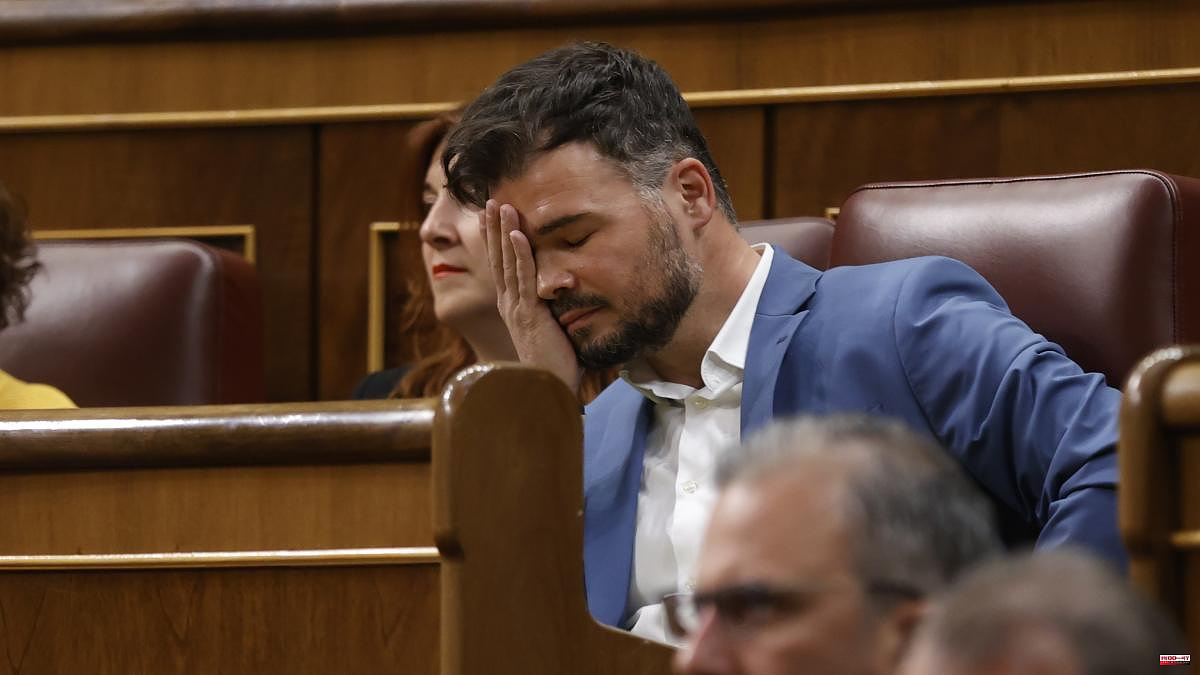Esquerra and Junts will defend this Thursday in the plenary session of Congress their entire amendments to the new National Security law with the intention that the Lower House return the text to the Government. In the case of the Republicans, they have registered an alternative proposal in which they directly advocate repealing the rule currently in force.
The Government, predictably the Minister of the Presidency, Félix Bolaños, will go up to the rostrum to present this reform in the midst of controversy over espionage on pro-independence politicians and also on members of the Council of Ministers, such as the Prime Minister himself, Pedro Sánchez.
The bill was approved three months ago, in the Council on February 15, and its purpose is to create a catalog of public and private resources to determine all the means available to the Government once it declares a situation "of interest to national security" and ensure their mobilization.
This catalog, which will be drawn up by ministries, regional and local executives, will include data on human resources, material means, facilities and all the assets that may be important when managing a crisis. Likewise, "participation of the private sector in the contribution of these resources" will be regulated.
The rule also provides that the resources of the autonomous communities and local entities become part of this plan of resources that would be made available to the country in the event of a situation in which national security is involved.
But in addition to trying to prevent the Government from processing this text, ERC will try to repeal the National Security Law already in force. In its alternative text, those of Gabriel Rufián point out that it is a "specially inexplicable and confusing legal text" because it interprets national security "as a constitutional concept" when the Magna Carta "does not include such a concept."
For the separatists of Esquerra, this rule contains a "diffuse" definition of national security that entails "legal insecurity" and "is so all-encompassing" that it can include "all conduct, acts and actions that can take place in a rule of law."
In addition, it considers this specific rule "absolutely unnecessary" when the National Defense Law, the Citizen Security Law and the State Action and Foreign Service Law already exist and rejects that it be left in the hands of the Government alone, without even consulting the legislature, the declaration of the situation of interest for national security.
In his opinion, this supposes "a twisting of the Rule of Law that guarantees exceptional interventions for situations of social protest" and a "worthy executory instrument of the so-called Gag Law".
Along these lines, he remarks that the law grants "exorbitant powers" to the President of the Government and the National Security Council to adopt measures with an "arbitrary and discretionary nature." And on top of that, he denounces "relegating" the autonomous communities to the role of a mere "spectator" and ignoring, for example, that both Catalonia and the Basque Country have their own police forces.
Junts also emphasizes the invasion of regional powers, in which he seeks an amendment that Congress returns to the Government the reform of the National Security Law. In his opinion, the new rule is committed to "a national security system that centralizes" and that goes against "the logic of the current jurisdictional distribution system."
In his opinion, with the reform the State "assumes the ability to unilaterally modify the competence framework established by the Constitution", which supposes an "unacceptable interventionism in an autonomous State".
Carles Puigdemont's party also warns that the norm modifies "main elements of the democratic nature of the State, and that they directly affect fundamental rights such as private property, the right of assembly, information or education", issues, adds on those that cannot be legislated by means of an ordinary law, that is to say, that do not have an organic character.
Likewise, it argues that this bill grants the Government "an excessively broad regulatory development, which entails the risk of using the regulatory power that can lead to situations of discretion."
The amendments of all of Junts and ERC will be debated on Thursday in the plenary session of Congress, although the bill is not in danger since neither the PP nor the PNV have asked to return the text to the Government.
4












